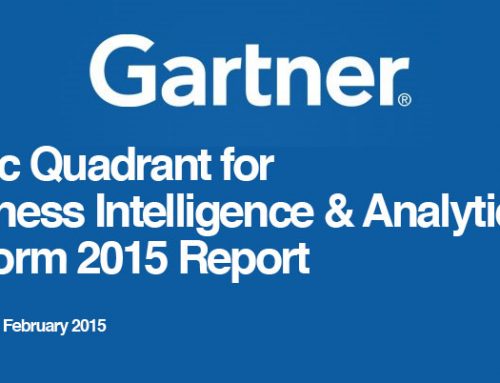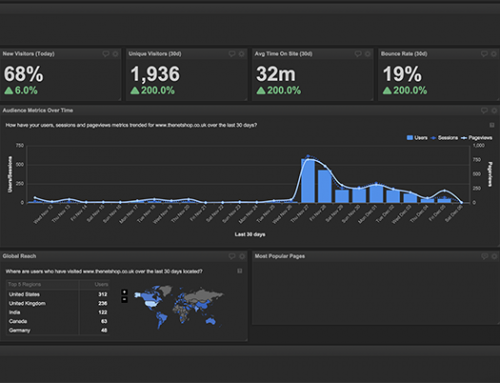Business Intelligence Defined!
Business intelligence is an over-arching term taken to cover a wide variety of mechanisms and strategies through which organisations can aim to gather, analyse and utilise data in ways that help improve their operations.
There are currently a growing number and variety of Business Intelligence tools, software applications and infrastructures being deployed and developed by enterprises around the world.
Although Business Intelligence as a concept and as a discipline has been around for many years, the field is undergoing something of a revolution and growing rapidly in prominence and usefulness as part of broader IT and enterprise strategies.
As more and more data is being produced and recorded by companies right around the world, organisations are looking for new ways to make use of raw information and Business Intelligence is rising to that challenge.
What are the potential benefits?
Efficiency gains
Perhaps the most obvious way in which Business Intelligence can be used to the advantage of a particular enterprise is through the identification of inefficient practices within an organisation.
Business Intelligence can be used to pick out aspects of a company’s supply chain, for example, that aren’t working in an optimally efficient fashion and make clear potential solutions in the process.
Cost savings
Business Intelligence can also give IT executives and enterprise managers insights into precisely how their company is operating and how cost savings could be made.
In this sense, BI is about providing greater visibility and about using the most relevant data analysis techniques to isolate instances of wastefulness within an organisation and its myriad of processes.
It is easy for executives or for individual enterprise units to believe that they know exactly how they might function more effectively but Business Intelligence turns the process of producing these insights into a science and looks at efficiency from the broadest possible perspective.
Identifying new opportunities
Business Intelligence and the associated data analysis techniques are increasingly being used to help companies figure out where new operating opportunities might be found.

An ecommerce website might, for example, run a trial on its website to find out whether placing advertisements in a particular portion of a webpage has a positive or negative impact on visitor behaviour and engagement.
The potential insights that can be derived even through relatively straightforward A/B testing on websites, with the help of Business Intelligence, can be enormous for companies with many thousands of users.
Business Intelligence and the innovative use of data analysis techniques allow organisations in a wide range of sectors to keep improving what they do and to deliver more of what their customers want and less of what they don’t.
Workforce management
Business Intelligence software and processes can also be used to assess and manage teams of staff in ways that allow organisations to maximise the potential within their workforce.
This can include data gathering and analysis of the way individuals are being trained and developed as employees and it can help to find ways of streamlining recruitment processes at every level.
In short, Business Intelligence can be put to work in a variety of ways to help companies and employers to pursue their strategic goals from a human resource perspective.
Cloud computing
A major shift in the scope and trajectory of Business Intelligence as a discipline was precipitated over the course of the last decade or so as the terms ‘cloud computing’ and ‘big data’ began to become ever-more commonly heard in the context of enterprise IT.
Cloud computing and, more specifically, routine cloud data storage, has meant that companies can now gather great swathes of data without any difficulty or onerous costs.
In fact, much of what Business Intelligence experts are now being asked to do is find ways to put the piles of data being routinely gathered on subjects such as customer behaviour, sales rates and supply chain processes to some practical use from an enterprise perspective.
What Business Intelligence can offer, when appropriately deployed, is a chance to make sense of and bring some coherence to the use of ‘big data’ that thousands of enterprises in every industry sector can now access.
The result has been a proliferation of Business Intelligence innovations and there would appear to be no limit to the realms into which the field might venture.
Business Intelligence Vs Big Data
There are cross-over areas between Business Intelligence and Big Data tools and in many ways the latter is redefining what the former will be used for in an enterprise context.
Business Intelligence though underpins Big Data analysis and is generally aimed squarely at the business of delivering answers to questions that companies have about their own operations or the markets in which they compete.
In 2014, what enterprises are looking for is advanced Business Intelligence that can not only be used to assess what is and has been happening in a given context but also to predict what will happen in the future.
Largely because of the rise of ‘big data’ as a phenomena, greater demands are being made of Business Intelligence and effective use of the associated techniques and technologies has become a high priority area for all manner of different businesses, whether they are large, medium or small in scale.
Finding ways to ensure that BI insights can be delivered concisely and understood by non-experts has been a challenge for the industry of late but the associated platforms are becoming easier to use and more commonplace at a rapid rate. In fact, making Business Intelligence and analytics more coherent, connected and easily understood is a major priority for all the key players in what is now a fast-growing and already a billion dollar global industry.
Competitive advantage
Increasingly, effective use of big data and Business Intelligence techniques is becoming a point of real competitive advantage or otherwise for multi-national corporations and medium-sized enterprises alike.
The trend looks very likely to continue for the rest of this decade and beyond.
To find out more you can visit our Business Intelligence Solutions page.








Leave A Comment